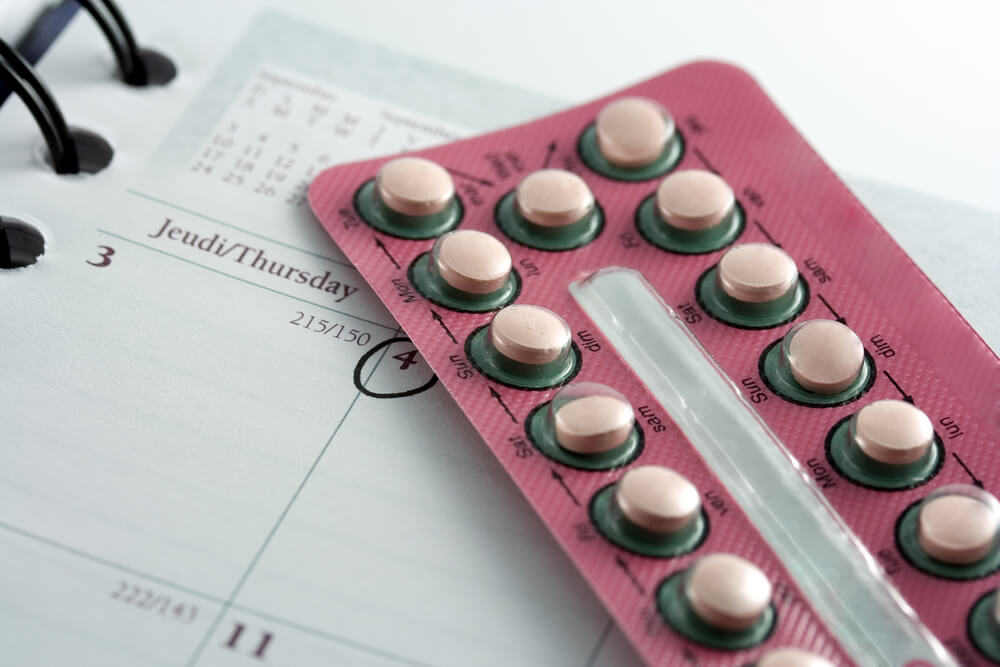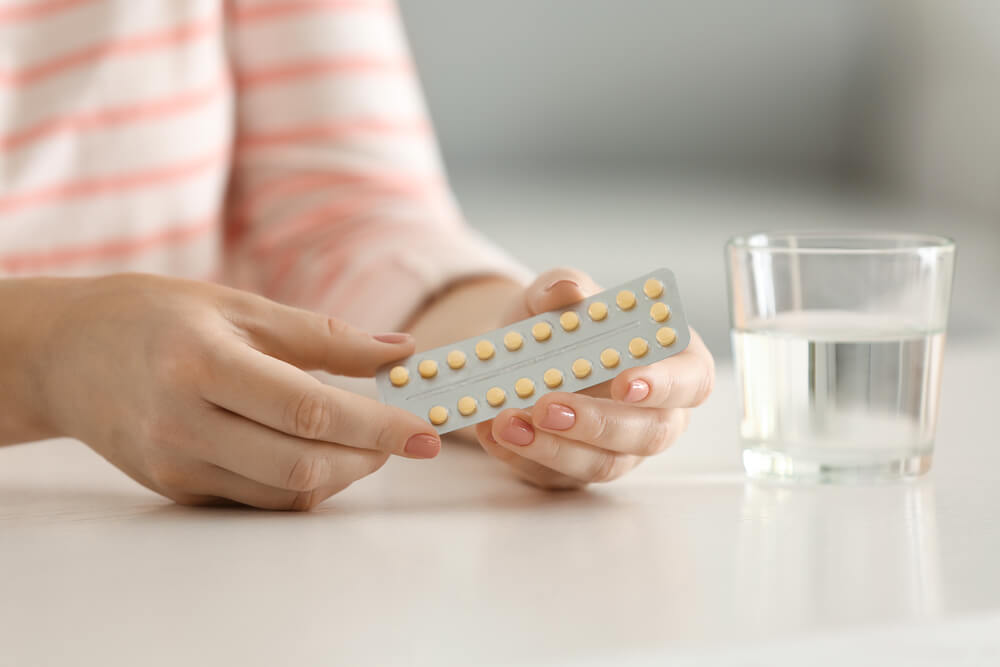When we become sexually active individuals, the pleasures and benefits can be wonderful, but it is also important to know that potential consequences can be involved. When it comes to having sexual intercourse, the risks of sexually transmitted diseases and unwanted pregnancy are real. While there are various methods to protect and limit the risk of both, we are going to look at a specific contraceptive method for the purpose of this article. Sixty years ago, the Food and Drug Administration (FDA) approved the first contraceptive pills to be used daily as a “non-barrier” method against pregnancy. Since 1960, there are numerous options available to women, and the effectiveness and side effects are much better understood now with decades of research. A big question that many women have as they get older is at what age should you stop taking birth control pills?
How Birth Control Pills Work
Developed as a daily contraceptive, birth control pills work by changing the hormone levels within the body in order to prevent the process of ovulation. Many of the body’s functions are controlled by hormones, which are essentially chemical signals, and ovulation is the function in which the ovaries release an egg to be fertilized by a sperm potentially. Birth control pills contain estrogen and progesterone (usually a mix of the two) and these are the female sex hormones that regulate ovulation as well as other reproductive processes.
As mentioned, the pills work to prevent the release of an egg, but they can also help in two other ways as well. The first way is that the hormones solidify the mucus that surrounds the cervix, which makes it a challenge for sperm to enter the uterus where an egg may have been released to (if the first prevention step fails). The other way that birth control pills prevent pregnancy is by changing the lining of the uterus, which makes it more difficult for an egg to attach (if released). These three preventative measures work in conjunction to make birth control pills nearly 100 percent effective at preventing unwanted pregnancy (if used correctly).
The choices for birth control pills include the combination dose and the mini pill. Combination pills contain both estrogen and progestogen hormones. This type is given in a 28-day cycle pack, where 21 of the pills contain the hormones to prevent pregnancy, and 7 pills are placebo pills. During the days where the placebo pills are taken, the woman will have her period. Some women want to reduce the number of periods they have in a year and this can be done by extending the length of days in which the hormone pills are taken. For example, some women choose to have a 12-week supply of hormone pills and then a 7-day cycle of inactive pills, and this cycle reduces the number of periods a woman will have in a year to 4 (every 3 months). The other type of birth control pill available is called the “mini-pill,” and unlike the combination pill, this pill only contains a low-dose of progesterone. They work in the same way by changing the mucosal thickness of the cervix as well as changing the lining of the uterus. Sometimes the mini pill can prevent ovulation as well.
Overall, the most important factor, whether using either type of pill, is that it must be taken every day in order to be the most effective. Even being late on one pill or a missed day completely, drastically decreases the effectiveness of the birth control pill’s ability to prevent pregnancy. Aside from routine consistency in taking the pills, other factors can inhibit the overall effectiveness of the birth control pills’ like existing health conditions, additional medications, or herbal supplements that may be taken.

Typical Side Effects of Birth Control Pills
Like almost all medications, there are potential chances of experiencing unpleasant or dangerous side effects that are a result of taking the medication. Birth control pills, while exceptionally effective, some of the potential side effects that include:
- Upset stomach
- Gaining weight
- Sore or swollen breasts
- Spotting in the middle of periods
- Lighter periods
- Mood changes
There are some more serious, although less common, side effects that need to be addressed immediately if experienced and they include:
- Abdominal pain
- Chest pain
- Headaches
- Eye problems (blurred vision primarily)
- Aching or swelling of the legs or thighs

What Age Should You Stop Taking Birth Control Pills?
While most women know that as they age, their fertility decreases, especially as they approach menopausal years. However, it should be understood that just because fertility decreases, periods may become irregular and the frequency of sex may diminish; women can still get pregnant through their 40s and into their 50s, even without any reproductive fertility assistance. It is important always to use a contraceptive measure at any time you have sex in order to avoid unwanted pregnancy.
Now, to focus on the potential health effects of taking birth control pills for women in their 40s and into their 50s. The combination pill can be safely used by women up until the age of 50 and the mini pill (progestogen-only) can be used up until the age of 55. The mini-pill may be the best birth control for 50-year-old women. Let us take a look at some of the benefits of taking birth control after 50 and the risks involved as well.
Benefits
- Reduced risk of unwanted pregnancy
- Regulate periods
- Help maintain bone mineral density
- Bone density loss is an issue for women after menopause
- Reduced blood loss and period pain
- Reduced or eliminated menopause symptoms such as hot flashes
- Lower the risk of endometrial cancer
- Reduce the risk of iron deficiency due to heavy periods
Risks
- Increased risk of stroke
- Blood clotting risks
- Increase the risk of heart attacks
- Abnormal/prolonged bleeding after periods
- Accelerated growth of certain cancer types
- Increased chance of complications if a smoker
Overall, there are some great benefits that women can enjoy from using birth control up to and slightly passed their 50th birthday. However, the doctor should take all aspects of a woman’s health into consideration because there are several preexisting health factors that can make taking hormonal birth control pills risky after the age of 50. If a woman is in good health and stands to benefit from the effects of properly dosed birth control pills, then they can safely take birth control pills after 50. It is important to remember that you should always consult with your doctor prior to taking any medications.
For women in the south Florida area, we have been helping patients for over 30 years enjoy healthy lives. As an OBGYN in Tamarac, Dr. Krinsky and our team offer exceptional patient care and some of the latest treatment options for various women’s health issues. To learn more about how we can help with everything from women’s health to weight loss solutions, visit our website.


